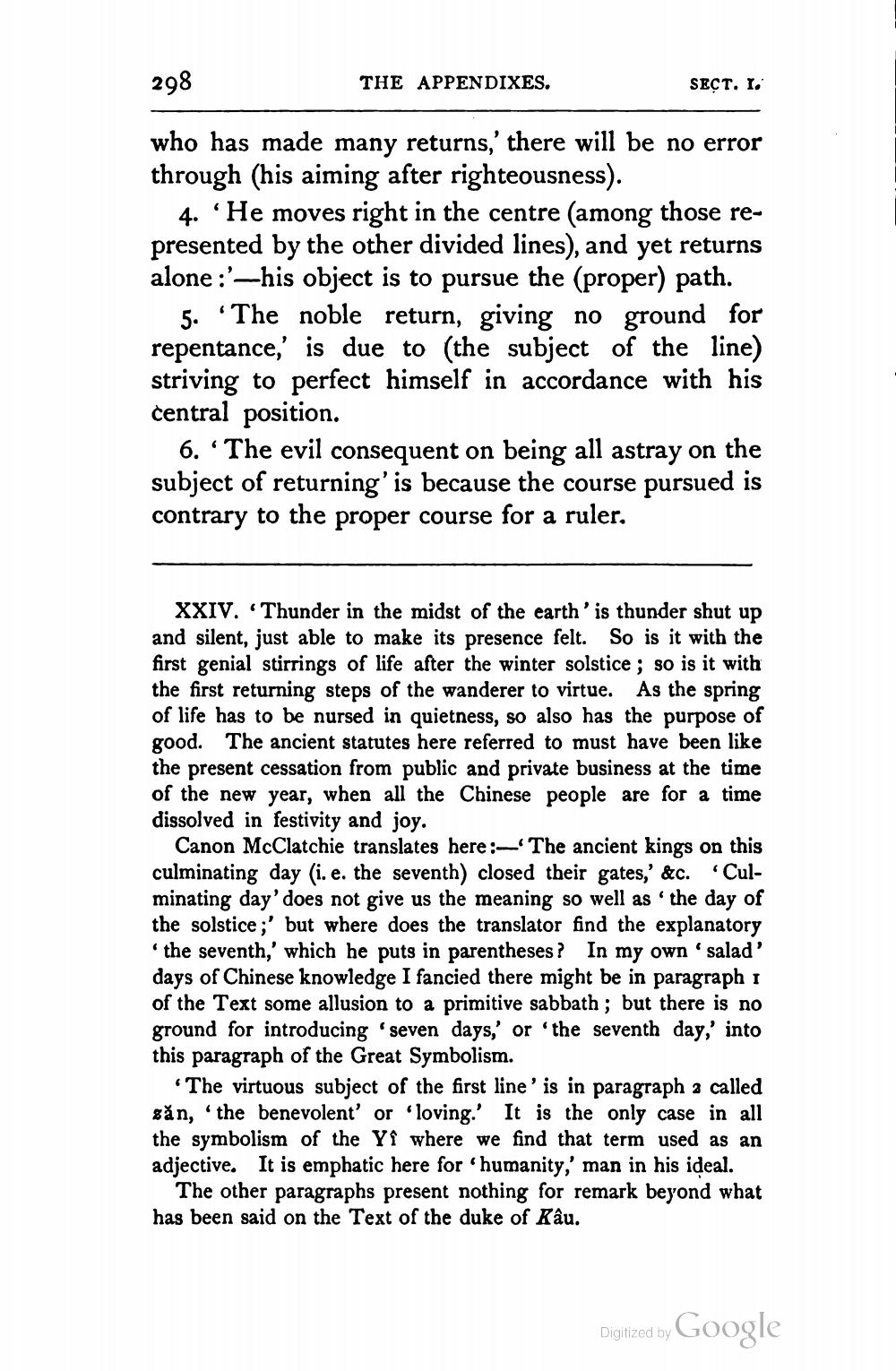________________
298
THE APPENDIXES.
SECT. I.
who has made many returns,' there will be no error through (his aiming after righteousness).
4. 'He moves right in the centre (among those represented by the other divided lines), and yet returns alone :'-his object is to pursue the (proper) path.
5. "The noble return, giving no ground for repentance,' is due to (the subject of the line) striving to perfect himself in accordance with his central position.
6. 'The evil consequent on being all astray on the subject of returning' is because the course pursued is contrary to the proper course for a ruler.
XXIV. Thunder in the midst of the earth' is thunder shut up and silent, just able to make its presence felt. So is it with the first genial stirrings of life after the winter solstice; so is it with the first returning steps of the wanderer to virtue. As the spring of life has to be nursed in quietness, so also has the purpose of good. The ancient statutes here referred to must have been like the present cessation from public and private business at the time of the new year, when all the Chinese people are for a time dissolved in festivity and joy.
Canon McClatchie translates here:- The ancient kings on this culminating day (i. e. the seventh) closed their gates,' &c. 'Culminating day' does not give us the meaning so well as the day of the solstice;' but where does the translator find the explanatory
the seventh,' which he puts in parentheses? In my own salad' days of Chinese knowledge I fancied there might be in paragraph 1 of the Text some allusion to a primitive sabbath ; but there is no ground for introducing 'seven days,' or 'the seventh day,' into this paragraph of the Great Symbolism.
The virtuous subject of the first line' is in paragraph 2 called săn, the benevolent' or 'loving. It is the only case in all the symbolism of the Yi where we find that term used as an adjective. It is emphatic here for 'humanity,' man in his ideal.
The other paragraphs present nothing for remark beyond what has been said on the Text of the duke of Kâu.
Digitized by Google




